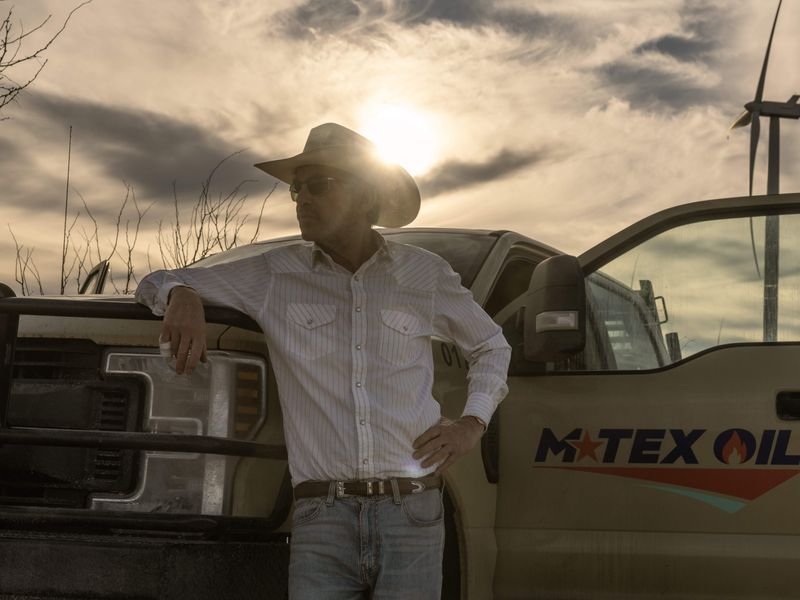A new television show that's slated to premiere this fall will put Texas' oil boom on center stage.
Taylor Sheridan's buzzy new Texas-based series Landman will premiere Sunday, November 17, on Paramount+, the network revealed. That's just one week after the November 10 debut of the final episodes of Sheridan's Yellowstone on Paramount.
Landman will launch with two episodes, with subsequent ones dropping weekly on Sundays, a news release says. In total, the first season will be 10 episodes long. The series is based on Texas Monthly's acclaimed podcast Boomtown by West Texas-raised journalist Christian Wallace, which aired from late 2019 to early 2020. Wallace is serving as a consultant and writer on the series.
"Set in the proverbial boomtowns of West Texas, Landman is a modern-day tale of fortune seeking in the world of oil rigs," the show's release says. "Based on the notable 11-part podcast Boomtown, the series is an upstairs/downstairs story of roughnecks and wildcat billionaires fueling a boom so big, it’s reshaping our climate, our economy and our geopolitics."
 'Landman' stars Billy Bob Thornton. Photo courtesy of Paramount+
'Landman' stars Billy Bob Thornton. Photo courtesy of Paramount+The series stars Billy Bob Thornton as the titular "land man" Tommy Norris, a crisis manager for an oil company.
He leads an all-star cast that includes Demi Moore as Cami Miller and Jon Hamm in a recurring guest role as her husband, Texas oil titan Monty Miller. Ali Larter plays Thornton's wife, Angela Norris; their two kids are portrayed by Michelle Randolph (1923) and Jacob Lofland (Joker 2).
 Jon Hamm stars as Texas oil titan Monty Miller, and Demi Moore plays his wife, Cami.Photo courtesy of Paramount+
Jon Hamm stars as Texas oil titan Monty Miller, and Demi Moore plays his wife, Cami.Photo courtesy of Paramount+Other stars include James Jordan (Yellowstone), Kayla Wallace (When Calls the Heart), Mark Collie (Nashville), and Paulina Chávez (The Expanding Universe of Ashley Garcia); Andy Garcia (Expendables franchise) and Michael Peña (End of Watch)will make guest appearances.
Sheridan is creator and executive co-producer, and the show is produced by MTV Entertainment Studios, 101 Studios, and Sheridan’s Bosque Ranch Productions. Its release comes sooner than expected; even the show's IMDB page says "2025."
Although it's set in West Texas,Landman has been filming around Dallas-Fort Worth since early 2024, with the show's stars frequenting restaurants and shops around town. Fans have been making a sport of posting local star sightings on social media.
Some lucky residents even got to be extras in sports scenes shot at TCU.
Unlike 1883, which was filmed in and around North Texas in 2021, Landman is not considered a Yellowstone spinoff.
Filming around Dallas-Fort Worth is convenient for Sheridan, who lives on a ranch near Weatherford with his wife, Nicole. He also filmed parts of his series Lawmen: Bass Reeves in North Texas in 2023.
A Texas cowboy through and through, Sheridan is the creator of the award-winning series Yellowstone, its prequels 1883 and 1923, and a forthcoming one reportedly called 1944, starring fellow Texan Matthew McConaughey.
The only question left is: Will Texas get to host the big Landman red-carpet premiere, as Fort Worth did for the Yellowstone Season 5 premiere in November 2022? Stay tuned.
———
This article originally ran on CultureMap.





